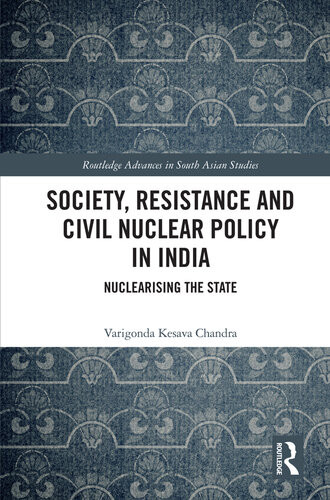

Most ebook files are in PDF format, so you can easily read them using various software such as Foxit Reader or directly on the Google Chrome browser.
Some ebook files are released by publishers in other formats such as .awz, .mobi, .epub, .fb2, etc. You may need to install specific software to read these formats on mobile/PC, such as Calibre.
Please read the tutorial at this link: https://ebookbell.com/faq
We offer FREE conversion to the popular formats you request; however, this may take some time. Therefore, right after payment, please email us, and we will try to provide the service as quickly as possible.
For some exceptional file formats or broken links (if any), please refrain from opening any disputes. Instead, email us first, and we will try to assist within a maximum of 6 hours.
EbookBell Team

4.8
104 reviewsThis book explores how anti-nuclear social movements impact the state’s civil nuclear policy and its implementation by presenting a historical-comparative case study of anti-nuclear movements in India.
Drawing on social movement theory and empirical methods, the book demonstrates that the ability for anti-nuclear movements to impede the inception of nuclear plants – a key element of India’s civil nuclear policy – is determined by the movement’s collective action repertoires, the politicisation of nuclear power and the state’s larger developmental paradigm, and the openness of state input structures. The case studies of anti-nuclear movements in Haripur, Kudankulam and Kovvada demonstrate how the implementation of civil nuclear policy is also determined by the state’s technical and financial capacity and effective international collaboration.With a focus on theorisation of social movements and their impact, combined with empirical studies of anti-nuclear movements, as well as the historical trajectory of civil nuclear development, the book adds a new prism to the study of India’s civil nuclear policy and anti-nuclear opposition. It will be of interest to researchers working on social movements, state-society relations, energy studies and civil nuclear energy in the context of South Asia and the Global South.